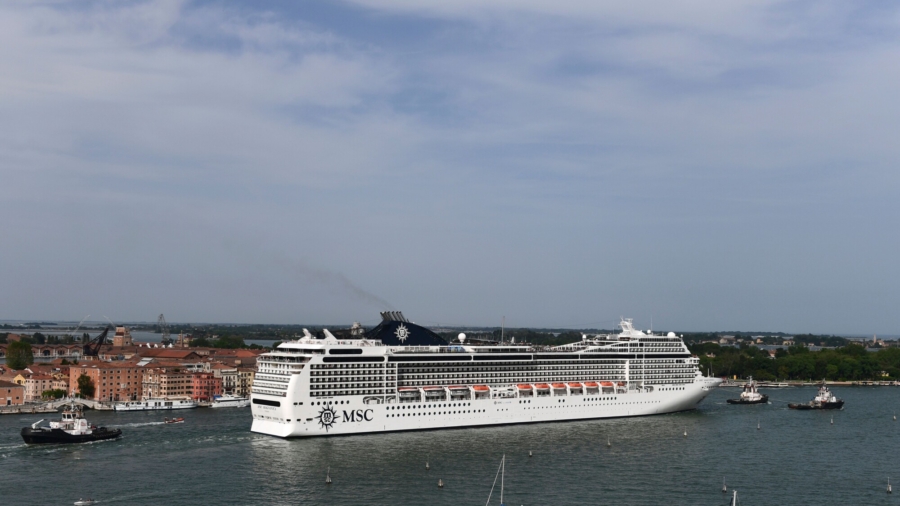Starting next month, ships over a certain size or weight or surpassing specific pollution levels can no longer ply the Giudecca Canal, a major sea artery in Venice, nor can they cruise the waters near St. Mark’s Square, the historic heart of the environmentally fragile city.
Until a permanent docking place can be chosen and developed for the big cruise ships, the liners will be allowed, for now, to pull up in Marghera, an industrial suburb of Venice.
The United Nations culture agency, which was considering declaring Venice an imperilled heritage site, on Wednesday hailed Italy’s ban on big cruise ships in the heart of the lagoon city.
UNESCO’s director-general Audrey Azoulay wrote on Twitter that the Italian government’s decision a day earlier to ban access by the mammoth liners as of Aug. 1 is “very good news and an important step that significantly contributes to the safeguarding of this unique heritage site.”
The Paris-based UNESCO last month had recommended adding Venice to its list of World Heritage in Danger sites.
The recommendation was expected to be pondered later this month during a UNESCO meeting in Fuzhou, China.
For years, protesters hoisting signs proclaiming “No Big Ships” have demonstrated in the city, sometimes taking to small boats to sail close to the cruise liners, which look like lumbering giants slicing through Venice to startled onlookers onshore.
“This decision is very positive, because it leaves no space for exceptions or quibbles,” said Tommaso Cacciari, leader of the No Big Ships activist group.
The government, in its Cabinet decree on Tuesday, allocated funds to compensate those whose tourist-heavy businesses might suffer from the ban, a decision that wasn’t welcomed by No Big Ships.
“It’s one thing for compensation to go to workers, to those who have lost their jobs, to those who are struggling to reach the end of the month, and that’s sacrosanct and right,” Cacciari said.
“But [it is absolutely wrong] to give public money to financial multinationals which, among other things, have one office in Miami, another in Switzerland, and so on?” Cacciari added.
The decree also declared Venice’s Giudecca Canal and waterways near St. Mark’s a “national monument” in urgent need of safeguarding.
In a comment that could strike some as counterintuitive, among those praising the Italian government’s move was a cruise industry trade association.
“We welcome the latest decisions of the Italian government,” said Francesco Galietti director for Italy of CLIA, the Cruise Lines International Association.
“We are very happy that there will be a special commissioner with overriding powers and completely dedicated to setting up alternative dockings for approved ships in the vicinity of the Marghera area,” added Galietti, explaining that the trade group had been advocating for an alternative to the Giudecca Canal for some 10 years.
As for any logistical problems the soon-to-take-effect ban might mean for imminent cruise itineraries, that wasn’t immediately clear.
But, Galietti noted, this year, with the tourist season struggling to regain steam after COVID-19 lockdown travel complications, many companies didn’t have Venice on their itineraries.


